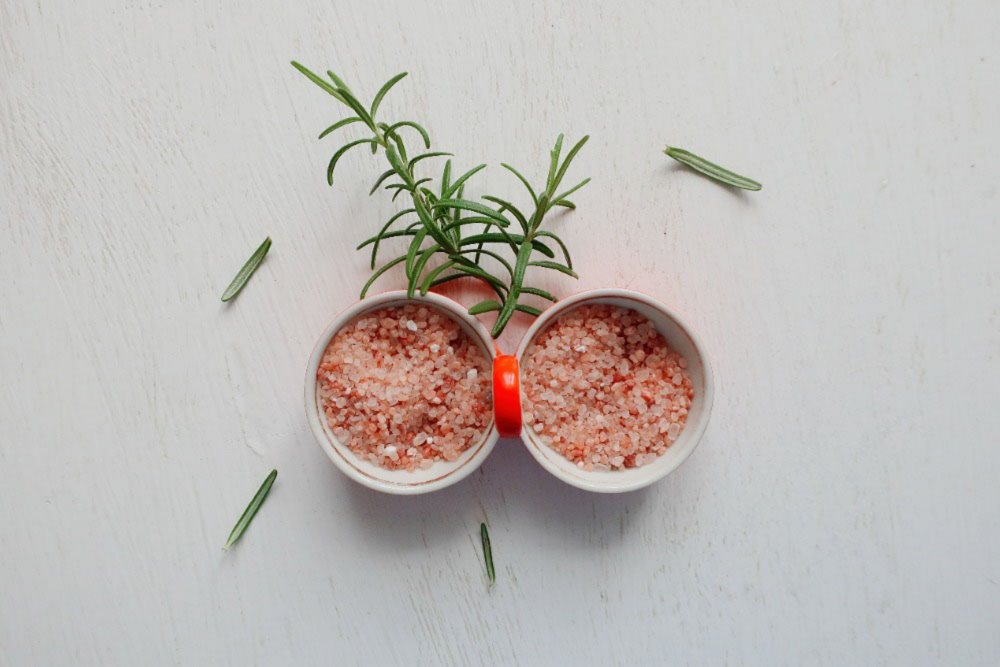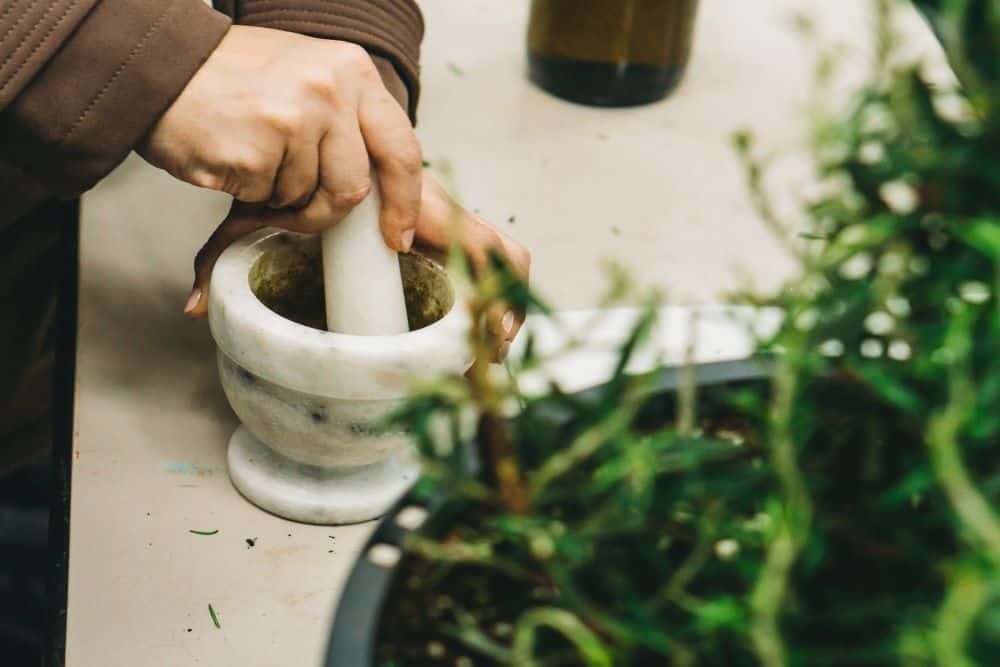Growing rosemary in your home has countless benefits, from cooking to medicine to pest control. You can use it to garnish cocktails or create a bouquet as a seasonal gift to your loved one. When using this versatile herb, your imagination is the limit!
Rosemary originates from the Mediterranean climate and has a very distinct and powerful smell that many admire. But, this herb is grown for many purposes! Below learn all about five benefits of growing rosemary in your home!
Growing Rosemary for Cooking
Image credits: Asya Vlasvova via Pexels
Growing food at home is often more economical than buying produce in stores. This is the case with rosemary, an essential spice for any kitchen pantry. The piney scent of rosemary is quintessentially associated with Christmas. The herb often finds its way onto festive dinner tables flavoring turkey, potatoes, vegetables, and even artisan breads.
Rosemary is low in moisture content, so it maintains its fresh scent even after drying. When using dried sprigs, you'll find the leaves are tougher. Chop or break the leaves off the stem and lavishly sprinkle them on top of meat, poultry, and fish dishes.
Rosemary in Cocktails
Image credits: Charlotte May via Pexels
Growing rosemary sprigs adds not only a garnish for drinks but also flavor. Use the sprigs to decorate your festive drinks. Adding rosemary to refreshing summery cocktails with grapefruit, apple, or pineapple balances the acidity of your concoctions by leaving hints of pine and eucalyptus. By adding gin or bourbon to your mix, you pack a punch.
Adding rosemary leaves to citrus, cranberry juice, or ginger ale is equally delicious for those who don't drink alcohol! For those who prefer hot drinks, brewing tea with rosemary leaves and flavoring it with a sweetener can soothe your tired nerves.
Growing Rosemary as an Insect Repellent
Image credits: Bogdan Sonjachnyj via Shutterstock
You can grow rosemary to deter unwanted guests, such as flies, cabbage moths, and mosquitoes. Its strong and pungent odor repels insects and the essential oils the plant produces make insects buzz off!
You may also want to grow rosemary in pots on your deck or patio to attract good pollinators such as bees.
Medicinal Benefits
Image credits: Tatiana Rodriguez via Unsplash
Growing rosemary has many health benefits. The herb is packed with vitamins such as A, C, and B-6. It's a good source of iron and calcium, too.
Having rosemary in the home serves your body and mind. By eating this herb, your body gains much needed antioxidants which helps your immune grow stronger and healthier. Even the smell of rosemary can relax you and improve stress hormone imbalances. Rosemary also helps stimulate the mind by increasing levels of concentration.
You can turn rosemary into a pleasant-smelling essential oil that can lower cortisol levels, thus reducing stress and anxiety. It is also a great sleep aid.
Pro Tip: Why not combine two relaxing herbs, such as lavender and rosemary, in a sachet to reap the full benefits? Adding them to a diffuser will bring a lovely scent to your bedroom.
Decorating with Rosemary
Image credits: Jessica Lewis Creative via Pexels
Homemade holiday wreaths use dried berries, citrus rinds, and herbs -- including rosemary. They can be hung in your kitchen, reminding you of the flavors and scents of cooking. Adorn your living room table with a pillar candle surrounded by a circle of sprigs. You can freshen the air around other parts of your house with a rosemary potpourri mixed with vanilla and lemon on the stovetop.
For an added bonus rosemary is a perfect natural cleanser. Prepare a cleaning astringent with a few sprigs of rosemary, lemon peel, and a mixture of white vinegar and water.
Finally, you can opt to give a rosemary plant or sprigs to family members as a gift! Wrap the herb in burlap and tie it with a rustic ribbon creating a beautiful present!
Note: Fresh rosemary leaves and sprigs are non-toxic to cats and dogs.
Care Tips
Image credits: cocoparisienne via Pixabay
Although drought-resistant, growing rosemary at home requires some seasonal care. Your plant will thrive in a clay pot with moist but well-draining soil. In summer, this herb needs plenty of sun, six hours, to be exact. Yet, in the winter, it prefers cooler and more moist conditions. The ideal temperature for this herb is between 40 to 65 degrees Fahrenheit.
Sprig up Your Health, Cooking, and Surroundings
There are plenty of benefits and positive uses to growing rosemary in your home — these range from cooking to aromatherapy to decorations. Get creative with your home recipes or try some DIY decorating ideas - the possibilities are endless. You can also add this herb to your growing kitchen garden.
Will you be using rosemary in your home? If you have any tips or tricks about this herb, please leave them in the comment field below.







